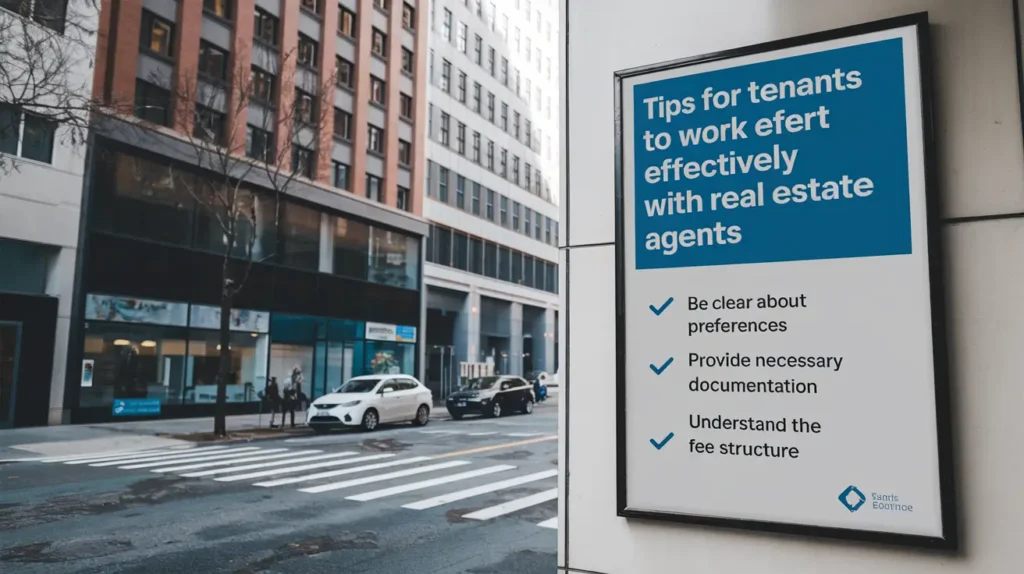How Do Real Estate Agents Get Paid for Rentals? Top 3 Powerful Strategies
Real estate agents play a vital role in helping clients find rental properties that suit their needs and budget. But one question that often arises is: How do real estate agents get paid for rentals? Unlike sales transactions where commissions are significant, rental agreements often involve smaller fees. However, the process and payment structure vary based on location, market conditions, and agreements between the agent, landlord, and tenant.

This article delves into the methods by which real estate agents earn from rental transactions, shedding light on the intricacies of commission structures, payment timelines, and the value they bring to the table.
Table of Contents
- How Do Real Estate Agents Get Paid for Rentals?: The Role of a Real Estate Agent in Rentals
- How Do Real Estate Agents Get Paid for Rentals? Top 3 Powerful Strategies
- How Do Real Estate Agents Get Paid for Rentals? Payment Timing and Process
- Also Read: Can a Real Estate Agent Recommend a Home Inspector? Understanding 4 Inspection
- How Commission Structures Differ by Market
- Advantages of Using a Real Estate Agent for Rentals
- How Do Real Estate Agents Get Paid for Rentals? Challenges in Getting Paid for Rentals
- How Do Real Estate Agents Get Paid for Rentals? How to Maximize Earnings as a Rental Agent
- How Real Estate Agents Add Value to the Rental Process
- How Do Real Estate Agents Get Paid for Rentals? Emerging Trends in Rental Real Estate
- Tips for Tenants to Work Effectively with Real Estate Agents
- Tips for Landlords to Get the Most Out of an Agent
- Common Misconceptions About Real Estate Agents and Rentals
- How Agents Can Stay Competitive in the Rental Market
- How Pofitable is Rental Real Estate?
- What Percentage do most Realtors take?
- What does a realtor do for renters?
- How much do Realtors Charge to find a Rental?
- Who Pays Realtor Fees when Renting?
- Who Pays Realtor fees for rentals in Texas?
- Who Pays Realtor fees for rentals in NJ (New Jersey)?
- Who Pays Realtor Fees for Rentals in California?
- How do Real Estate Agents get Paid for Rentals on Reddit?
- How do Realtors get Paid for Commercial Leases?
- Are Realtor Fees Negotiable for Rentals?
- Is it Worth using a Realtor to find a Rental?
- How Do Real Estate Agents Get Paid for Rentals? Key Takeaways
- Conclusion: How Do Real Estate Agents Get Paid for Rentals?
- FAQs About How Real Estate Agents Get Paid for Rentals
- 1. How much do real estate agents charge for rentals?
- 2. Do tenants always have to pay the agent’s fee?
- 3. Do real estate agents get paid upfront for rentals?
- 4. Can real estate agents represent both the landlord and the tenant?
- 5. How is the commission split between agents and brokers?
- 6. What happens if a rental deal falls through?
- 7. Is it better for landlords to pay the agent’s fee?
- 8. Can a tenant negotiate the broker fee?
- 9. Are digital platforms replacing real estate agents for rentals?
- 10. What is the difference between a rental agent and a leasing agent?
- 11. Can agents earn more from luxury rentals?
- 12. How do real estate agents market rental properties?
- 13. Do agents get repeat business for rentals?
- 14. Are real estate agents necessary for every rental?
How Do Real Estate Agents Get Paid for Rentals?: The Role of a Real Estate Agent in Rentals
Real estate agents perform various tasks to facilitate the rental process:
- Property Listings: Agents gather details about available rental properties, creating appealing listings.
- Client Representation: They represent either the landlord or the tenant, ensuring a smooth rental process.
- Negotiation: Agents negotiate terms, rental amounts, and lease agreements to satisfy both parties.
- Market Knowledge: Their expertise helps clients navigate pricing trends and identify suitable properties.

How Do Real Estate Agents Get Paid for Rentals? Top 3 Powerful Strategies
1. Commission from Landlords
In many rental markets, landlords pay real estate agents for finding tenants. The payment is often a percentage of the annual rent or a flat fee. For example:
- Percentage Model: An agent may receive 8-15% of the total annual rent.
- Flat Fee: Some landlords offer a set amount regardless of the rent price, especially for low-value properties.
2. Fee from Tenants
In some cases, tenants are responsible for paying the agent’s fee. This is common in competitive rental markets like New York City, where tenants might pay:
- One month’s rent.
- A percentage of the yearly lease amount.
3. Dual Representation
Agents who represent both the landlord and the tenant may earn fees from both sides. However, this arrangement must comply with local real estate regulations and ethical guidelines.

How Do Real Estate Agents Get Paid for Rentals? Payment Timing and Process
When Do Agents Get Paid?
Agents typically receive payment once a lease agreement is signed and the first month’s rent is paid. The exact timeline can vary depending on the rental market and contractual agreements.
Payment Methods
- Direct Payment: Landlords or tenants pay the agent directly.
- Brokerage Split: If the agent works for a brokerage, the payment is routed through the firm, which takes a percentage before disbursing the rest to the agent.
Also Read: Can a Real Estate Agent Recommend a Home Inspector? Understanding 4 Inspection
How Commission Structures Differ by Market
Urban Markets
In cities with high demand for rentals, agents often charge tenants directly. For instance:
- In New York City, tenants frequently pay the broker fee, which can be 15% of the annual rent.
- In San Francisco, agents may work on flat fees from landlords due to stricter tenant protections.
Suburban Markets
In suburban areas, landlords are more likely to cover the agent’s commission, usually as a flat fee or a percentage of the monthly rent.
International Variations
In countries like the UK, tenant fees are often prohibited, and agents earn exclusively from landlords. Conversely, in regions like Asia, both parties might share the costs.

Advantages of Using a Real Estate Agent for Rentals
1. For Tenants
- Access to a curated list of properties.
- Expert negotiation assistance.
- Guidance through the lease signing process.
2. For Landlords
- Assistance in marketing the property.
- Pre-screening of potential tenants.
- Faster turnover and occupancy.
3. For Both Parties
Agents simplify the rental process, ensuring compliance with legal and market standards.
How Do Real Estate Agents Get Paid for Rentals? Challenges in Getting Paid for Rentals
1. High Competition
In saturated markets, agents must compete for clients, often reducing their fees to stay competitive.
2. Smaller Earnings Compared to Sales
Rental transactions typically yield lower commissions than property sales, requiring agents to handle multiple deals to earn a significant income.
3. Payment Delays
Disputes or delays in lease finalization can postpone agent payments.

How Do Real Estate Agents Get Paid for Rentals? How to Maximize Earnings as a Rental Agent
1. Specialize in High-Demand Areas
Agents working in prime locations or luxury rental markets can command higher fees.
2. Build a Strong Network
Collaborating with landlords and property management companies ensures a steady stream of rental listings.
3. Leverage Technology
Using platforms like Zillow or Realtor.com to market properties can attract more clients and streamline the rental process.
How Real Estate Agents Add Value to the Rental Process
1. Streamlining the Search for Tenants
Searching for rental properties can be a daunting and time-consuming process for tenants. Real estate agents simplify this by:
- Offering access to exclusive listings not available on public platforms.
- Filtering properties based on the tenant’s budget, preferences, and location.
- Scheduling and managing property tours, saving the tenant time and effort.
2. Helping Landlords Fill Vacancies Quickly
Vacant rental properties cost landlords money, making swift tenant placement a top priority. Agents assist by:
- Marketing the property effectively on online platforms, social media, and through their professional networks.
- Attracting quality tenants through thorough vetting, including credit checks, employment verification, and rental history reviews.
- Advising landlords on competitive pricing and rental market trends.
3. Navigating Legal and Contractual Obligations
Real estate agents help both tenants and landlords avoid legal pitfalls by ensuring compliance with rental laws and lease agreements. Their expertise includes:
- Drafting or reviewing lease agreements to align with local laws.
- Explaining the rights and responsibilities of tenants and landlords.
- Ensuring security deposits, rent payments, and other financial arrangements meet legal standards.

How Do Real Estate Agents Get Paid for Rentals? Emerging Trends in Rental Real Estate
The rental market continues to evolve, and agents must adapt to these changes to remain competitive and relevant. Some current trends include:
1. Growing Popularity of Digital Platforms
Technology has transformed how real estate agents operate. Digital tools and apps like Zillow, Apartments.com, and Rent.com allow agents to:
- Showcase properties with virtual tours and 3D walkthroughs.
- Communicate with clients remotely through chat and video calls.
- Use automated systems for scheduling tours and managing documentation.
2. Demand for Short-Term Rentals
The rise of short-term rental platforms like Airbnb has created opportunities for agents to assist in managing these types of properties. Real estate agents can:
- Help property owners convert properties into short-term rentals.
- Advise on compliance with local short-term rental regulations.
- Market properties to maximize occupancy rates.
3. Increasing Focus on Sustainable and Affordable Rentals
With a growing emphasis on sustainability and affordability, agents are helping landlords adapt by:
- Highlighting eco-friendly features of rental properties.
- Advising on rent control laws and affordable housing programs.

Tips for Tenants to Work Effectively with Real Estate Agents
To ensure a smooth experience when working with a real estate agent, tenants should:
- Be Clear About Preferences: Clearly communicate your budget, location preferences, and must-have features.
- Provide Necessary Documentation: Have your proof of income, references, and credit reports ready.
- Understand the Fee Structure: Clarify whether you or the landlord will cover the agent’s commission.

Tips for Landlords to Get the Most Out of an Agent
Landlords can maximize the benefits of working with an agent by:
- Providing Clear Information: Share detailed property descriptions and tenant expectations.
- Offering Competitive Compensation: Agents prioritize properties with better commission structures.
- Maintaining the Property: Ensure the rental property is clean and well-maintained for viewings.
Common Misconceptions About Real Estate Agents and Rentals
1. Agents Always Earn High Commissions
Rental commissions are often smaller compared to sales, and agents may handle many transactions to maintain a steady income.
2. Only Tenants Benefit from Agents
While agents help tenants find homes, they also serve landlords by reducing vacancy periods and ensuring reliable tenant placement.
3. Agents Are Only Necessary for Luxury Rentals
Agents work with properties at all price points, offering services tailored to the needs of both budget-conscious renters and high-end clients.
How Agents Can Stay Competitive in the Rental Market
1. Develop a Niche
Specializing in a specific area, such as luxury rentals, short-term leases, or pet-friendly properties, can help agents stand out.
2. Build a Strong Online Presence
Maintaining active profiles on rental platforms and engaging on social media can help agents attract a steady stream of clients.
3. Offer Exceptional Customer Service
Satisfied tenants and landlords often lead to referrals, making excellent customer service a vital aspect of success in the industry.
4. Stay Updated on Market Trends
Understanding local rental trends, including seasonal demand fluctuations and pricing, allows agents to provide accurate advice to clients.
How Pofitable is Rental Real Estate?

Rental real estate can be highly profitable if managed well. Profitability depends on factors such as:
- Rental income: Monthly rent exceeding operating expenses like maintenance, taxes, and mortgage payments leads to positive cash flow.
- Appreciation: Over time, property value often increases, adding long-term wealth.
- Tax benefits: Rental property owners can deduct expenses like repairs, insurance, and depreciation.
Profit margins typically range from 4-10% annually, but luxury rentals or prime locations can generate higher returns.
What Percentage do most Realtors take?
Most realtors charge:
- Residential rentals: 8-15% of the annual rent, or one month’s rent as a flat fee.
- Commercial leases: Typically 4-8% of the total lease value, negotiated based on lease length and complexity.
What does a realtor do for renters?
Realtors for renters assist tenants in finding and securing rental properties. Their services include:
- Searching for available properties.
- Scheduling tours and providing insights on the market.
- Assisting with negotiations and lease agreements.
- Ensuring the property meets the tenant’s requirements.
How much do Realtors Charge to find a Rental?
The fee for finding a rental depends on the market:
- Flat Fee: One month’s rent, common in urban areas.
- Percentage: 8-15% of the total yearly lease. Some markets allow negotiation of these fees, particularly in competitive areas.

Who Pays Realtor Fees when Renting?
The responsibility for paying realtor fees varies:
- Landlords: In many suburban and rural areas, landlords cover the fee to attract tenants quickly.
- Tenants: In high-demand urban markets like New York City, tenants often pay the broker fee.
- Split Payment: In some cases, fees may be shared between landlords and tenants, depending on the agreement.
Who Pays Realtor fees for rentals in Texas?
In Texas:
- Landlords often pay the realtor’s fee to attract tenants, especially in suburban or smaller markets.
- In competitive urban areas like Austin, tenants may pay broker fees if the market allows.
Who Pays Realtor fees for rentals in NJ (New Jersey)?
In New Jersey:
- Realtor fees are negotiable. However, it is common for tenants to cover the fee, especially in competitive areas like Jersey City or Hoboken.
- Fees can range from one month’s rent to a percentage of the annual rent.

Who Pays Realtor Fees for Rentals in California?
In California:
- Landlords typically pay realtor fees, especially in suburban areas and less competitive markets.
- In high-demand areas like Los Angeles or San Francisco, tenants may pay broker fees, but this is less common due to strict tenant protections in some cities.
How do Real Estate Agents get Paid for Rentals on Reddit?
Discussions on Reddit reveal:
- Agents often receive their commission from the landlord in suburban markets.
- In cities like NYC, tenants often complain about broker fees being as high as 15% of the annual rent.
- Many Redditors recommend negotiating fees or using platforms like Zillow or Apartments.com to avoid paying high commissions.
How do Realtors get Paid for Commercial Leases?
Realtors for commercial leases typically earn:
- A percentage of the total lease value, often between 4-8%.
- Split commissions for longer leases (e.g., 5 years): A portion upfront and the remainder over the lease term. Commercial deals may involve higher payouts but require more effort due to complex negotiations and zoning considerations.
Are Realtor Fees Negotiable for Rentals?
Yes, realtor fees for rentals can often be negotiated:
- Tenants may ask landlords to cover the broker fee in competitive situations.
- In less competitive markets, agents may lower their fees to secure the deal.
Is it Worth using a Realtor to find a Rental?
Using a realtor can be highly beneficial, particularly if:
- You’re relocating to an unfamiliar area.
- The rental market is competitive, and you need access to exclusive listings.
- You’re looking for specific features or need help navigating lease terms.
How Do Real Estate Agents Get Paid for Rentals? Key Takeaways

- Realtor fees for rentals vary by location, market demand, and agreements between parties.
- Landlords often pay fees in suburban or less competitive markets, while tenants bear the cost in high-demand urban areas.
- Commercial leases offer different commission structures, often tied to the lease’s length and value.
- Realtor services add value by simplifying the rental process for both tenants and landlords.
Conclusion: How Do Real Estate Agents Get Paid for Rentals?
Real estate agents play a pivotal role in the rental market by bridging the gap between landlords and tenants. From marketing properties to negotiating leases and ensuring legal compliance, their services bring immense value to both parties. Understanding how real estate agents get paid for rentals highlights their contributions and the challenges they face in this sector.
As the rental market evolves with new trends, agents must adapt to remain competitive. Tenants and landlords, on the other hand, can benefit greatly by choosing experienced and knowledgeable agents who understand their specific needs. Whether you’re a tenant searching for the perfect rental home or a landlord aiming to minimize vacancies, collaborating with a real estate agent can make all the difference.
FAQs About How Real Estate Agents Get Paid for Rentals
Here are some frequently asked questions about how real estate agents earn their income from rental transactions:
1. How much do real estate agents charge for rentals?
The fee typically varies by location and property value:
- Percentage model: Agents charge 8-15% of the annual rent.
- Flat fee: Some charge one month’s rent or a predetermined amount.
2. Do tenants always have to pay the agent’s fee?
No. In many areas, landlords cover the agent’s commission. However, in high-demand markets like New York City, tenants are often responsible for the broker fee.
3. Do real estate agents get paid upfront for rentals?
Usually not. Agents are paid after the lease is signed and the first month’s rent and security deposit are collected.
4. Can real estate agents represent both the landlord and the tenant?
Yes, this is known as dual representation, but it must comply with local real estate laws. Agents are required to disclose their dual role and ensure fair dealings for both parties.
5. How is the commission split between agents and brokers?
If the agent works for a brokerage, the commission is often split:
- The broker takes a percentage (commonly 20-50%), and the agent receives the rest.
6. What happens if a rental deal falls through?
If the lease agreement is not finalized, the agent typically does not get paid, as their commission is contingent on a successful transaction.
7. Is it better for landlords to pay the agent’s fee?
Yes, offering to pay the agent’s fee can make the property more attractive to potential tenants, especially in competitive markets.
8. Can a tenant negotiate the broker fee?
In some cases, tenants can negotiate the broker fee, especially if the property has been on the market for a while or in less competitive rental markets.
9. Are digital platforms replacing real estate agents for rentals?
While platforms like Zillow and Apartments.com are popular, many landlords and tenants still prefer working with agents for personalized service, market expertise, and assistance with legal paperwork.
10. What is the difference between a rental agent and a leasing agent?
- Rental agents represent tenants, helping them find suitable properties.
- Leasing agents typically work for landlords or property management companies to market and lease out properties.
11. Can agents earn more from luxury rentals?
Yes. Commissions on high-value rentals are often higher due to the larger rental amounts, and agents can negotiate better terms for luxury properties.
12. How do real estate agents market rental properties?
Agents use:
- Online rental platforms.
- Social media marketing.
- Professional photography and virtual tours.
- Their network of contacts and referrals.
13. Do agents get repeat business for rentals?
Yes, satisfied tenants may return to the same agent when seeking a new property. Additionally, landlords often rely on the same agent for multiple rental properties.
14. Are real estate agents necessary for every rental?
Not always. For simple rentals, tenants and landlords may handle transactions themselves. However, agents add significant value for higher-end properties, competitive markets, or when legal expertise is needed.





